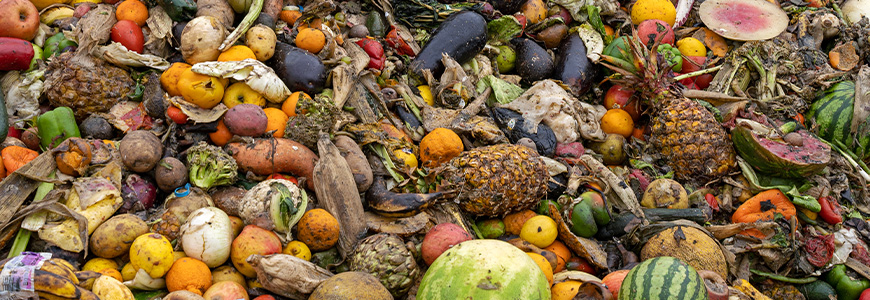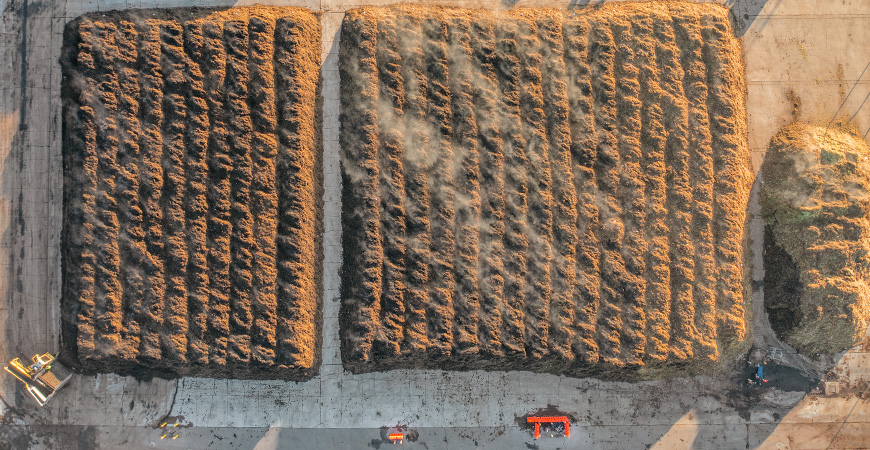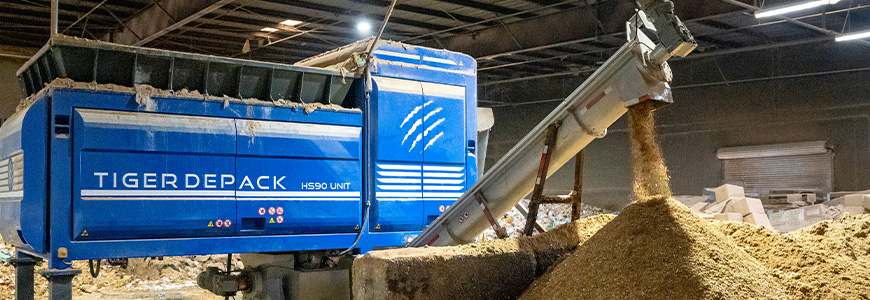The Kansas City Chiefs weren’t the only winner of Super Bowl LVII. The City of Phoenix and host of the 2023 matchup between the Chiefs and Philadelphia Eagles was also a winner, reaching its goal to become the greenest Super Bowl in history.
The city did it with the help of Arkansas-based Denali, a specialty waste and environmental services company, and its state-of-the-art depackaging machine. It separated packaging, wrappers, and other trash from leftover wings, barbecue pork, nachos, and other food waste, keeping the organic material out of landfills.
Ultimately, 92.6% of the waste from the Super Bowl was diverted from landfill—81 tons of trash—to qualify it as a zero-waste event under the EPA’s definition.
A Leader in Recycling Organic Waste
Denali, with facilities across the country including Phoenix, is one of the largest providers of organic waste recycling in the United States. Formed from predecessor companies in 2014, Denali’s co-founder Andy McNeill, a William Blair private wealth client, believes waste should not be wasted.

Denali collects all types of organic waste—food from grocery stores, restaurants, processing companies; biosolids from wastewater treatments; materials from lawn and garden stores—and turns it into fertilizer, feed, compost, and fuel.
Its WeCare division, for example, acquired in 2016, is among the nation’s largest manufacturers of compost, soils, and mulch made from recycled organic waste. Last year, Denali managed over 600,000 tons of food waste, working with Fortune 500 companies and state and local governments from California to New York.
“We want to strategically change what happens, with a mission to replenish the earth by repurposing waste,” says McNeill. “Sustainable has to mean that the solution we provide can happen tomorrow, the day after that and the day after that. It’s about making incremental progress, so we’re at least one step better than what we are doing today.”

There are multiple trends driving industries and governments to seek Denali’s services, McNeill says. Landfill scarcity is among the most significant. There are only about 1,200 landfills now available in the U.S., down about 35% over the last couple decades, according to EPA data. And they are filling up with many state and local governments reluctant to permit new landfills. Organic waste comprises about one-quarter of the material going into landfills every day.
Moreover, there is a growing sentiment among businesses, governments, and communities wanting to generate less trash. That trend is being reflected in states nationwide mandating organic waste be kept out of landfills. Large corporations also face new ESG requirements and will need specific sustainability data that Denali can capture and provide customers as they recycle waste.
Denali has expanded to meet those demands. Its workforce has doubled in the past couple years to 1,700 employees serving customers in 48 states and Puerto Rico. Revenue was nearly $800 million in 2022, up from $30 million in 2014 when McNeill founded the company.

Private equity firm TPG Growth invested in Denali in early 2020. Since then, Denali has made 13 acquisitions—including deals like Organix Recycling, the largest collector of supermarket food waste, and Imperial Western Products, a major West Coast biodiesel refiner.
“Acquisitions are really important to us and will continue to be important,” McNeill says. “We’re living in an era of land grabs because we are running out of places to take waste. So in the future, instead of waste going to a landfill, it might be taken to a compost yard, a mulching yard, or a feed conversion yard.”
Diversifying Services
Denali likes to buy a company that might specialize in one type of waste conversion and then add three or four other recycling solutions to the site. A mulch yard may also be a good place to compost food waste. A location used to convert cooking oil into biodiesel may also be the right location to park and maintain Denali’s trucks. A land application site may also be a place to store and process material.
Sites that convert food waste and other organic materials into new products will increasingly replace landfills. In anticipation of this shift, Denali is acquiring “dots on a map” for communities to recycle their organic waste, says McNeill.
That approach also builds expertise across multiple niche markets—from providing biosolids management solutions for wastewater treatment plants to converting organic wastes into fertilizers for farmers, to turning food waste into a source of energy.

Earlier this year, McNeill transitioned from CEO to chairman of the board. Todd Mathes, who was hired as president and chief operations officer in 2021 after holding executive roles at other waste conversion companies, was named CEO.
“If we’re trying to get to the top, we’ve got to really work as a team.” McNeill says. “We have to make sure we have the right people in the right position. That’s what we’re doing.”
McNeill is going to focus on long-term goals, M&A activity, and strategic issues while Mathes will drive day-to-day operations.
In reflecting on where his company is headed, McNeill often references its namesake: Denali, the highest peak in North America. The dramatic Alaskan landscape and pristine wilderness that shape the mountain’s foundation are an inspiration, symbolizing what the company could achieve.
“I like to think that change is coming, somebody is going to be leading it and bringing new ideas to this industry. Why can’t it be us?”



